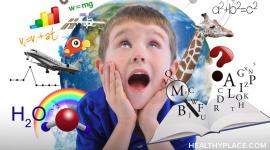Adult ADHD: Identification and Diagnosis

Many ADHD adults don't realize they have the disorder. Discover why diagnosing ADHD in adults is difficult.
Attention deficit hyperactivity disorder (ADHD) is a highly publicized childhood disorder that affects approximately 3 percent to 5 percent of all children. What is much less well known is the probability that, of children who have ADHD, many will still have it as adults. Several studies done in recent years estimate that between 30 percent and 70 percent of children with ADHD continue to exhibit symptoms in the adult years.
Due to its high frequency and its broad range of effects, there is a significant health and economic impact of ADHD. While the symptoms of distractibility, impulsivity, and hyperactivity can interfere with daily activities at work, school, or home, they may also contribute to the increased incidence of accidents (e.g. automobile collisions, poisoning, and fractures) occurring in patients with ADHD. Persons with ADHD are also more likely to exhibit additional mental health conditions such as learning disorders (25%), a conduct disorder (15%), anxiety disorder (20%), and/or depression (30%). The social and economic impact of ADHD reaches beyond the greater than average share of healthcare, mental health, social, and special education services extended to the patients directly, to include the health and work outcomes of caregivers. Family members are faced with both the additional challenge of living with or caring for a person who has ADHD, as well as the fact that at least some of them may also have psychological disorders since ADHD is a marker of genetic risk for mood disorder among family members.
Typically, adults with ADHD are unaware that they have this disorder—they often just feel that it's impossible to get organized, to stick to a job, to keep an appointment. The everyday tasks of getting up, getting dressed and ready for the day's work, getting to work on time, and being productive on the job can be major challenges for the ADHD adult.
Diagnosing AD/HD in Adults
Diagnosing an adult with ADHD is not easy. Many times, when a child is diagnosed with the disorder, a parent will recognize that he or she has many of the same symptoms the child has and, for the first time, will begin to understand some of the traits that have given him or her trouble for years—distractibility, impulsivity, restlessness. Other adults will seek professional help for depression or anxiety and will find out that the root cause of some of their emotional problems is ADHD. They may have a history of school failures or problems at work. Often they have been involved in frequent automobile accidents.
To be diagnosed with ADHD, an adult must have childhood-onset, persistent, and current symptoms. The accuracy of the diagnosis of adult ADHD is of utmost importance and should be made by a clinician with expertise in the area of attention dysfunction. For an accurate diagnosis, a history of the patient's childhood behavior, together with an interview with his life partner, a parent, close friend, or other close associate, will be needed. A physical examination and psychological tests should also be given. Comorbidity with other conditions may exist such as specific learning disabilities, anxiety, or affective disorders.
A correct diagnosis of ADHD can bring a sense of relief. The individual has brought into adulthood many negative perceptions of himself that may have led to low esteem. Now he can begin to understand why he has some of his problems and can begin to face them. This may mean, not only treatment for ADHD but also psychotherapy that can help him cope with the anger he feels about the failure to diagnose the disorder when he was younger.
Source: NIMH ADHD publication
next: Treatment of Adult ADHD
APA Reference
Staff, H.
(2009, January 29). Adult ADHD: Identification and Diagnosis, HealthyPlace. Retrieved
on 2026, March 5 from https://www.healthyplace.com/alternative-mental-health/adhd/adult-adhd-identification-and-diagnosis



